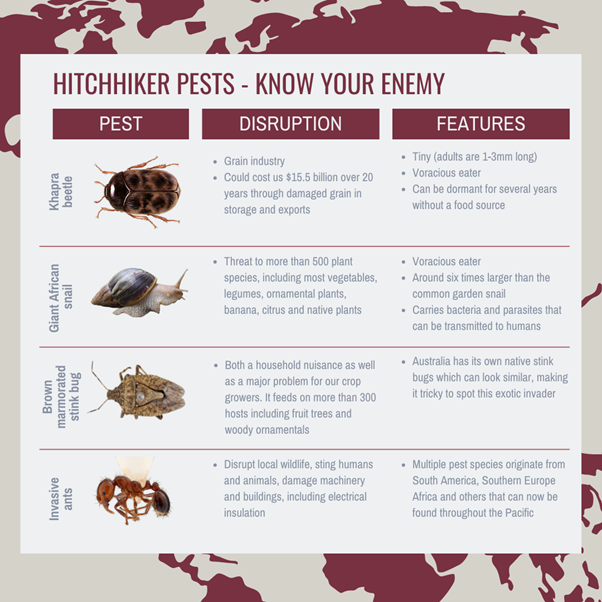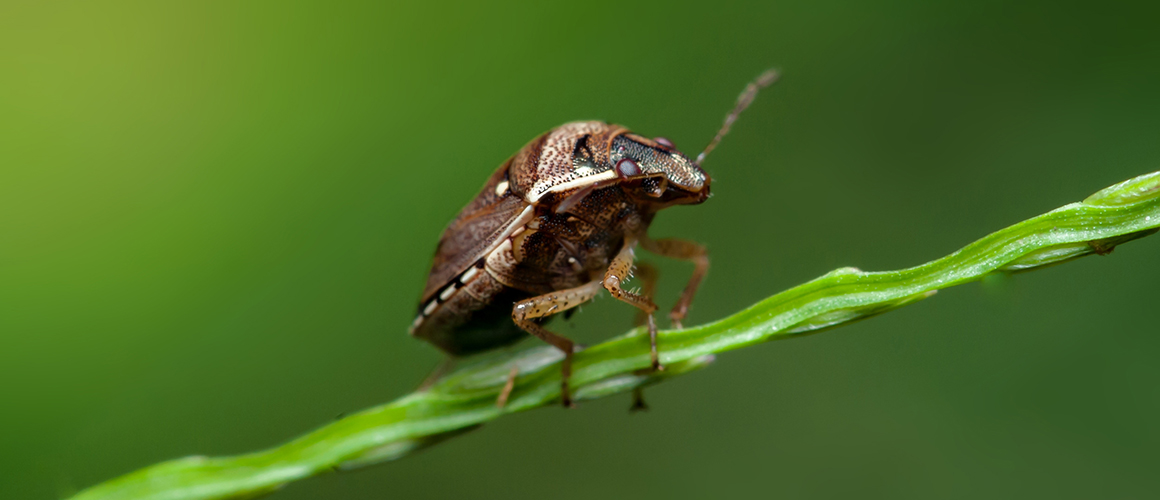Hitchhiker pests – an encroaching threat
Australia has a strong, robust biosecurity system in place to prevent the entry and establishment of pests that could threaten our agricultural industries, environment and way of life. The system targets high-risk entry pathways for pests, but some serious pests are sneaky and persistent.
Following instinct, hunger and just being in the right place at the right time they can travel to Australia on the outsides and insides of sea containers, regardless of what is being imported.
These are what we call hitchhiker pests, and we really don’t want them coming to Australia and eating us out of house and home.
You may have heard of some of them, such as the:
Approximately 20 million sea containers are in circulation globally. On average, 2.5 million sea containers arrive in Australia each year. As the amount of sea containers coming to Australia increases, so does the risk of these pests crossing our borders.
The Department of Agriculture, Water and the Environment has and continues to implement a series of measures to combat these hitchhikers. This includes seasonal mandatory offshore treatment of certain goods to target brown marmorated stink bugs, inspections of containers that are unpacked in rural areas, inspection of containers arriving from giant African snail countries and container cleanliness certificates to ensure containers arriving in Australia have been cleaned prior to loading and are clean and free of material of concern.
More recently, the department commenced implementing a series of urgent actions for both plant products and sea containers to protect Australia against khapra beetle. This has included mandatory offshore treatment for both sea containers packed with high-risk plant products in a khapra beetle target risk country and for sea containers that are packed in a khapra beetle target risk country and that will be unpacked in a rural grain growing area in Australia. At a later date, further changes to the import of sea containers will be implemented and revised phytosanitary certification will be introduced for imports of all seeds for sowing.
The department is also trialling new innovative technology such as environmental DNA detection and hyperspectral imaging technology, and utilising more traditional methods such as detector dogs. However, the department is also calling on industries help to fight the battle against hitchhiker pests. To find out how you can help prevent the spread of hitchhiker pests, check out the department’s 7 tips for sea container cleanliness poster and video on the importance of container cleanliness.
Biosecurity is a shared responsibility, so let’s work together to prevent hitchhiker pests from calling Australia home!

Source: The Department of Agriculture, Water and the Environment (DAWE)

